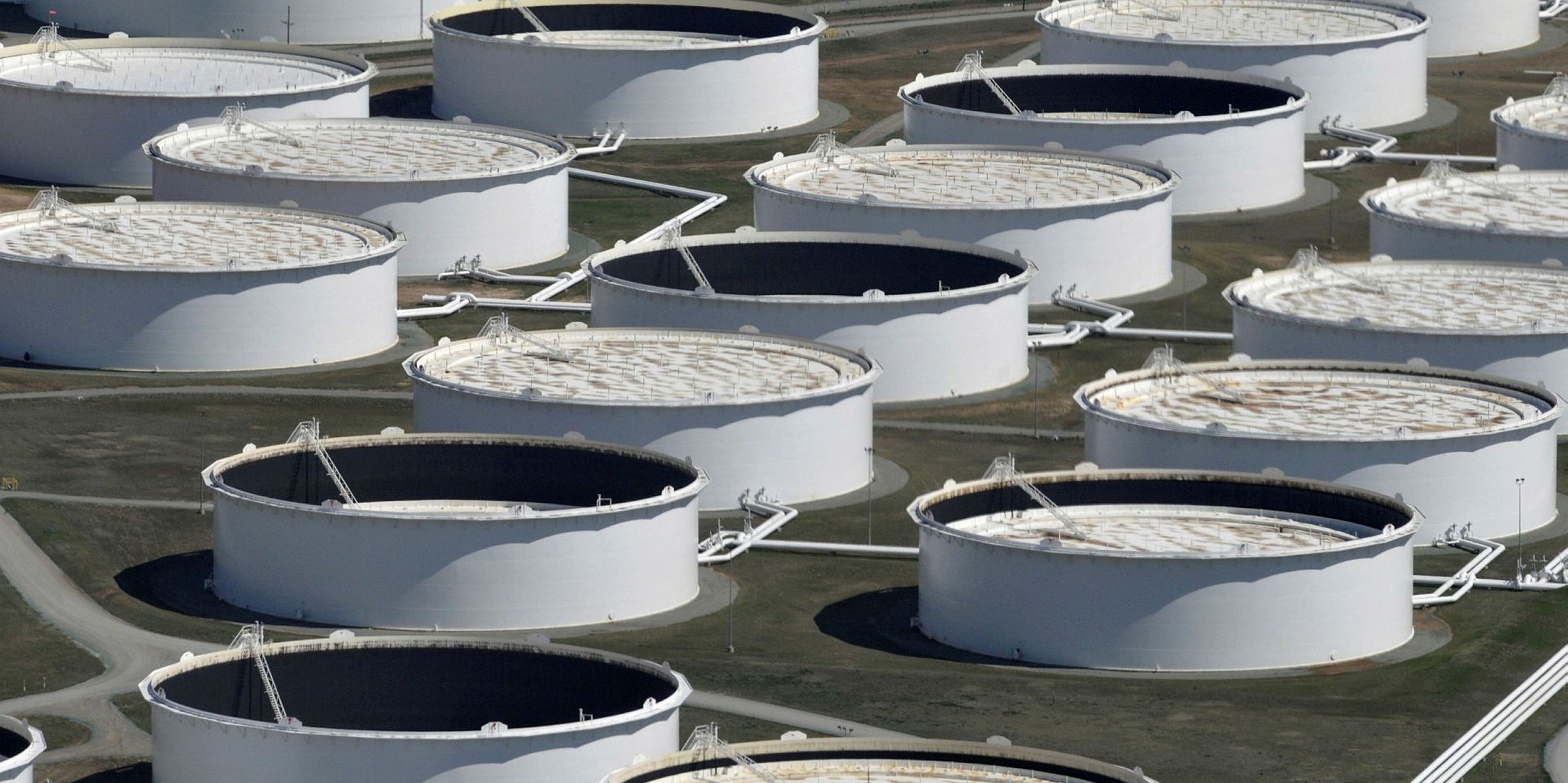Politics
Dems Slammed Trump For Trying To Top Off Strategic Oil Reserve. Now Biden Wants To Refill With Oil Prices 3X Higher

The Biden administration is aiming to refill the strategic petroleum reserve (SPR) at a price of $79 per barrel, a level more than three times higher than the price that the Trump administration had sought to replenish at in 2020.
The Trump administration sought to refill the SPR when oil prices were hovering around $25 per barrel with about $3 billion of taxpayer funds in March 2020, identifying the COVID lockdown-induced fall in oil prices as an opportune time to refill the SPR at a favorable rate to the taxpayer, according to Roll Call. The Biden administration, which tapped into the SPR as energy prices spiked ahead of the 2022 midterm elections, now wants to buy 6 million barrels to partially replenish the key reserve at $79 per barrel, after numerous Senate Democrats ripped the Trump administration’s proposal as a de facto handout to Big Oil three years ago.
The Trump administration’s suggested refill funding would have been included in a COVID-19 relief bill, with the aim of buying 77 million barrels to fill the SPR close to its maximum capacity of 714 million barrels from the roughly 640 million barrels that were in the reserve at the time, according to Roll Call. Proponents of the plan at the time argued that the move would add to U.S. energy security while also extending a lifeline to the oil and gas industry, which had been struggling as the affects of the COVID-19 crash came to bear.
“The increasing affordability and prevalence of renewable energy technology provides a cleaner, cheaper alternative to oil, illustrating the recklessness of investing taxpayer money in what will likely become stranded assets,” Democratic Sens. Ed Markey of Massachusetts, Jeff Merkley of Oregon and Bernie Sanders of Vermont wrote in a March 2020 letter to former President Donald Trump expressing their opposition to his administration’s proposed SPR refill funding. The letter characterized the effort to top off the SPR as an attempt to “bail out the oil industry.”
Senate Democrats eventually got their way, and the SPR funding was ultimately left out of the COVID-19 relief packages, according to Roll Call. Then-Senate Minority Leader Chuck Schumer celebrated the SPR funding’s exclusion at the time, with a spokesperson for his office saying at the time that Senate Democrats had stopped a “$3 billion bailout for big oil” in a statement to Roll Call.
Subsequently, Biden opted to release 180 million barrels of oil from the SPR in late 2021 and 2022 as fuel prices skyrocketed for American consumers, a spike which created a political headache for Biden and fellow Democrats in the months leading up to that year’s midterm elections. Now, the SPR has about 17 days of emergency supply left, and the potential implications of the Israel-Hamas war have brought Biden’s SPR decisions back into focus as some energy experts say that his releases leave the U.S. more vulnerable in a period of heightened global geopolitical risk.
The spot price of West Texas Intermediate crude oil on Monday of this week was about $86 per barrel, according to data from the U.S. Energy Information Administration, meaning that prices will need to fall if the Biden administration’s solicitation target is to be reached.
The SPR is at its lowest levels since 1983, and the Department of Energy (DOE) decided against replenishing it in August, citing unfavorable market conditions when prices hovered at levels above $80 per barrel. In July, numerous energy experts cautioned that it could take “decades” to refill the SPR after Biden’s releases.
The offices of Schumer, Markery, Merkley, Sanders, the DOE and the White House all did not respond immediately to requests
All content created by the Daily Caller News Foundation, an independent and nonpartisan newswire service, is available without charge to any legitimate news publisher that can provide a large audience. All republished articles must include our logo, our reporter’s byline and their DCNF affiliation. For any questions about our guidelines or partnering with us, please contact [email protected].

